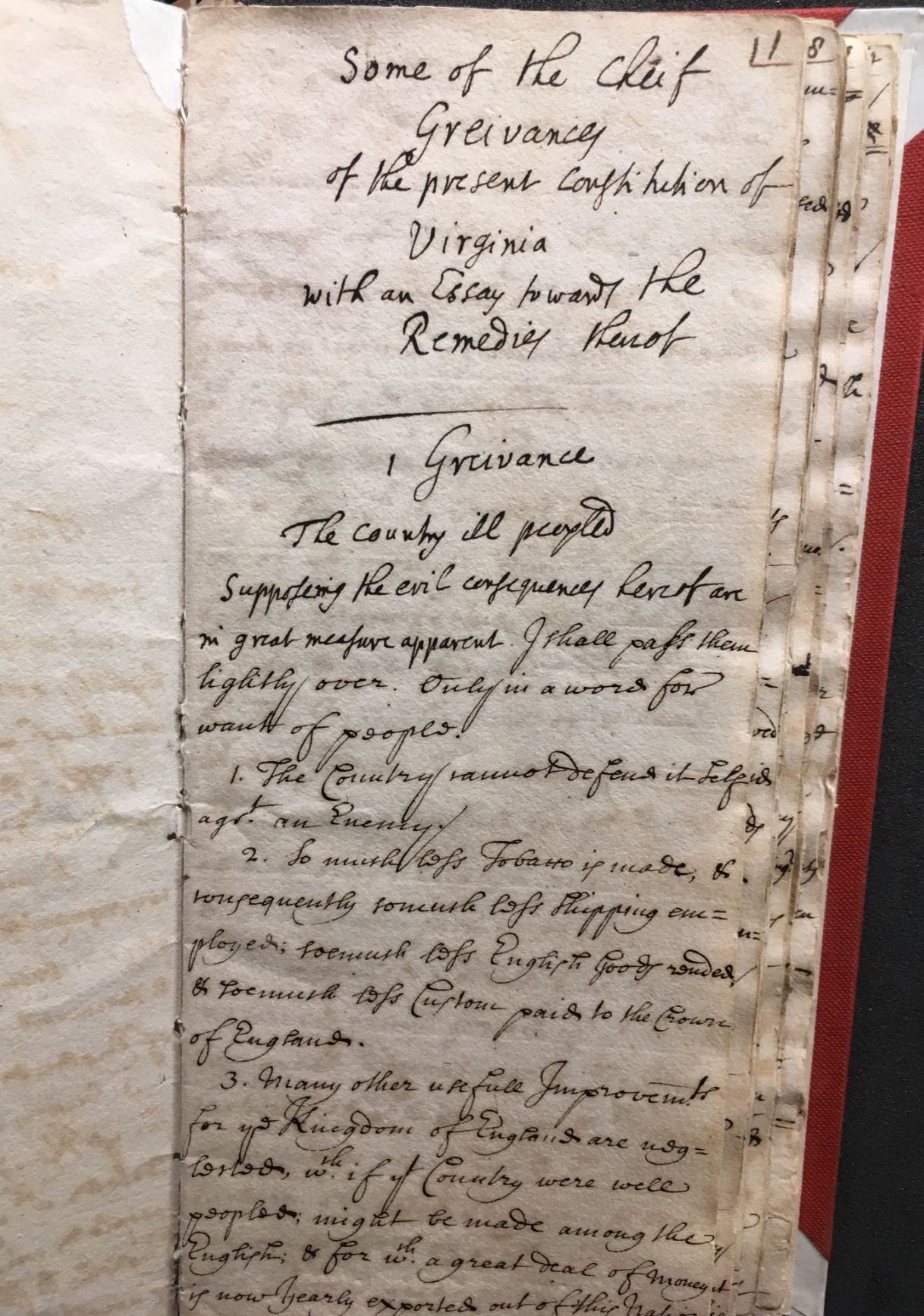London
Locke’s 1698 Virginia Plan
As a leading member of the Board of Trade after the Glorious Revolution in 1688, John Locke investigated and wrote a lengthy plan to reform Virginia laws and policies, including polices of governance and that related to slavery.
After the Glorious Revolution and the publication of his Two Treatises of Government as well as his other major treatises, especially his Essay Concerning Human Understanding (1690), which justified those revolutions, Locke became very well known. Even though he refused, even on his deathbed, to publically acknowledge authorship, it was widely acknowledged by many that he was the author. As a consequence, when William III turned to reforming colonial governance in 1696, he appointed John Locke to a newly reorganized “Board of Trade” which was supposed to review all colonial laws and suggest reforms. William III also appointed Locke because of strong pressure from the radical “Whig Junto” that then controlled Parliament, led by Sir John Somers. They threatened to wrest control of the colonies away from King William if he did not make efforts to reform them. Virginia was of great interest to Locke and the board, partly because it was the first colony, but also because it was one of the largest and most profitable colony for the crown (given that tobacco tax revenues collected in England were very high, even compared to sugar). Locke, along with other reforming members of the board, led a two-year investigation into Virginia on a wide range of topics, which involved a great deal of correspondence as well as close questioning of Virginians in London. At the end of that time, Locke composed this Virginia Plan, which provided the basis for new royal instructions for a new Governor of Virginia, Francis Nicholson, in 1699. Locke was very critical of the former Governor of Virginia, Edmund Andros. Andros had been a favorite of James II’s, and Governor of the Dominion of New England from 1685-1689 before King William and Queen Mary transferred him to Virginia in 1693.[1]
The following Virginia Plan was found rolled up in Locke’s desk when the Bodleian library acquired his papers after WWII, but scholars did not at first realize that Locke wrote it. It is a fascinating example of how the abstract debates about power translated into practical changes after the Glorious Revolution. In particular, pay attention to Locke’s observations and remedies related to the headright system, and consider how that perverted the distribution of power and contributed to the organization of governance and society. Even with a new Governor in place, it was difficult to change everything in Virginia from above: Locke in particular did not wish to overrule the legislature. Why?
The plan grew out of deep investigation into corruption in Virginia, and included recommendations that Locke would proceed to try to implement as instructions to the new Royal Governor Nicholson, in 1699. This document is particularly interesting because it represents a concrete set of proposals by which Locke tried to enact some of the principles of his Two Treatises. One of the recommendations, to get rid of the bounty to masters for importing servants (including “negro servants”) led to a Virginia court decision by which Nicholson reversed the policy of granting a reward of 50 acres of land to masters who bought slaves, a reward that had originated in repeated monarchical proclamations, dating most recently to one by Charles II in 1682. It thus in some respects challenged slavery. The plan also sought reforms to limit the power of appointed officials in Virginia, to increase the power of elected assemblies, and to limit corrupt justice (among many other things). [2] After William III died in a hunting accident in 1702, many of these changes were reversed under Queen Anne.
Explore Side-By-Side Transcription
Read Transcription Only
Background
Background Goes Here
Further Reading
Links Go Here
Citations
[1] Lauren Michalak helped with the transcription and introduction to this document. It is a corrected and amended version of the transciption by Michael G. Kammen in “Virginia at the Close of the Seventeenth Century: An Appraisal by James Blair and John Locke.” The Virginia Magazine of History and Biography 74, no. 2 (1966): 141-69. http://www.jstor.org/stable/4247202.
[2] For more background on this document, see Holly Brewer, “Slavery, Sovereignty, and ‘Inheritable Blood’: Reconsidering John Locke and the Origins of American Slavery,” The American Historical Review, Volume 122, Issue 4, October 2017, Pages 1038–1078, https://doi.org/10.1093/ahr/122.4.1038 https://academic.oup.com/ahr/article/122/4/1038/4320238?guestAccessKey=8b2e0af8-275e-4b2c-b6a4-6a3872c266b0

Locke’s 1698 Virginia Plan
